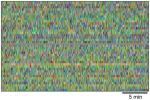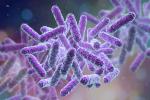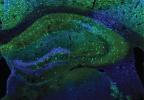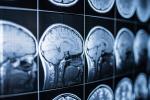The Department of Veterans Affairs (VA) and National Institutes of Health have launched a study to gain a better understanding of the chronic symptoms of Gulf War Illness.
Press Releases
Image

Image

Friday, February 24, 2023
By using state-of-the-art technology to analyze patterns of behavior in mice with epilepsy, researchers may be able to better study the disorder and identify potential treatments.
Image

Monday, February 20, 2023
In a small study, researchers used a device that stimulates the spinal cord to restore arm and hand mobility in two stroke patients, allowing them to perform daily life activities, such as using a fork to eat a meal.
Image

Thursday, February 16, 2023
Black and Hispanic Americans appear to experience more symptoms and health problems related to long COVID, a lay term that captures an array of symptoms and health problems, than white people, but are not as likely to be diagnosed with the condition, according to new research funded by the National Institutes of Health.
Image

Wednesday, February 8, 2023
Researchers have found differences in the gut microbiomes of people with myalgic encephalomyelitis/chronic fatigue syndrome (ME/CFS) compared to healthy controls.
Image

Thursday, February 2, 2023
Human spinal cord cell atlas provides foundation to study neurodegeneration, chronic pain, and other diseases.
Image

Tuesday, November 1, 2022
Using a mouse model, researchers have discovered a new daily rhythm in a type of synapse that dampens brain activity.
Image

Wednesday, September 14, 2022
Today, the U.S. Food and Drug Administration and the National Institutes of Health (NIH) announced the launch of the Critical Path for Rare Neurodegenerative Diseases (CP-RND)—a public-private partnership aimed at advancing the understanding of neurodegenerative diseases and fostering the development of treatments for amyotrophic lateral sclerosis (ALS) and other rare neurodegenerative diseases.
Image

Tuesday, August 30, 2022
Researchers have published two papers describing how they identified a potential new pathway for treating a sporadic form of amyotrophic lateral sclerosis (ALS). The studies were published as part of a cooperative research agreement between the National Institute of Neurological Disorders and Stroke (NINDS), part of the National Institutes of Health, and the Switzerland-based biotechnology company GeNeuro Inc.
Image

Wednesday, August 10, 2022
A study funded by the National Institutes of Health found that biomarkers present in the blood on the day of a traumatic brain injury (TBI) can accurately predict a patient’s risk of death or severe disability six months later. Measuring these biomarkers may enable a more accurate assessment of patient prognosis following TBI, according to results published today in Lancet Neurology.
